WELCOME!
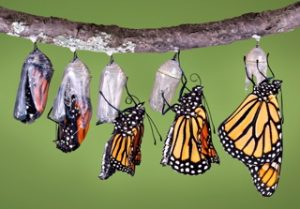 “Continue to unfold. Find your worthiness in the learning and unlearning. The breaking and the healing. Find peace within your broken pieces and be made whole.”
“Continue to unfold. Find your worthiness in the learning and unlearning. The breaking and the healing. Find peace within your broken pieces and be made whole.”
― Minaa B.
What an auspicious occasion this is to be sitting to write the first blog post for the Holistic Education Initiative. In the weeks, months and years that follow I hope that many of you will join me and each other in a rich dialogue exploring wholeness and holism in education.
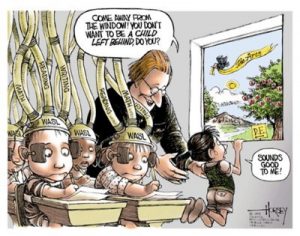 The world view that underlies contemporary mainstream education has become stagnant and stultified. We have, as a discipline, and as a profession ceased to unfold. And when organisms stop developing, changing and growing, it is a certain indicator of ill-health and eventually death. I see the current fear-based and panic inducing rhetoric about “A Nation at Risk,” children being “left behind” and the imperative of “Racing to the Top” to be indicators of an aged, lumbering and unresponsive organism in its death throes, clinging by its fingernails to the vestiges of language with which it has sought to define itself during this terminal stage. Or, put another way, as John P. Miller said in a recent talk, “holistic education is based on the notion that the universe is both interconnected and changing. When we assume it is isolated and static, we cause suffering.” This blog, this website and this organization is dedicated to re-imagining and revitalizing the unfolding.
The world view that underlies contemporary mainstream education has become stagnant and stultified. We have, as a discipline, and as a profession ceased to unfold. And when organisms stop developing, changing and growing, it is a certain indicator of ill-health and eventually death. I see the current fear-based and panic inducing rhetoric about “A Nation at Risk,” children being “left behind” and the imperative of “Racing to the Top” to be indicators of an aged, lumbering and unresponsive organism in its death throes, clinging by its fingernails to the vestiges of language with which it has sought to define itself during this terminal stage. Or, put another way, as John P. Miller said in a recent talk, “holistic education is based on the notion that the universe is both interconnected and changing. When we assume it is isolated and static, we cause suffering.” This blog, this website and this organization is dedicated to re-imagining and revitalizing the unfolding.
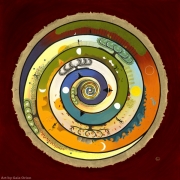 In the 1980’s a new paradigm was emerging, and a small corner within the field of education began to coalesce around the concept of holism. Authors, activists and leaders at this time worked to weave together various wisdom traditions and philosophical antecedents all of which pointed towards an evolving holistic human consciousness.
In the 1980’s a new paradigm was emerging, and a small corner within the field of education began to coalesce around the concept of holism. Authors, activists and leaders at this time worked to weave together various wisdom traditions and philosophical antecedents all of which pointed towards an evolving holistic human consciousness.
Pioneers such as Ron Miller, John P. Miller, Edward Clark and others wrote seminal texts, founded journals and hosted conferences that began to crystallize a new and hopeful oasis within the bleak and desolate landscape of “educational reform.” Perhaps education isn’t about articulating endless lists of age-tied isolated standards, and measuring learners against them. Just maybe, posited these pioneers, education is about reclaiming ourselves through relationship, connectedness and integration. Maybe it is not enough to increase “rigor” and “achievement” according to the narrow definitions being used by the educational industry. Maybe education is about learning how to beautifully and patiently unfold. Educators should reach towards nurturing the capacities of fully actualized humans. We should be supporting the growth of people to be able to be both deeply in touch with their interiority, as well as profoundly connected to the biotic, human and cosmic communities in which they live. Maybe curriculum shouldn’t consist of teacher-proof textbooks and fill-in-the-blank work sheets. Perhaps our true curriculum consists of our place, our world and our selves. And just maybe the goal of education isn’t knowledge and individual achievement but rather wisdom and compassion. As Thomas More wrote almost five hundred years ago, “One of the greatest problems of our time is that many are schooled, but few are educated.”
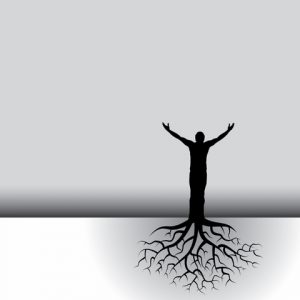 Over the past several decades, holistic educators have continued to write, speak and meet at conferences around the world. Pockets of holistic education communities have emerged in various places, coagulating and dissipating, amoeba-like, engaged in continuous explorations of these and related concepts. Scholarly journals have come and gone. In part, the HEI wants to shine light on the important contributions of the scholars, activists and educators who have taken time to swim in these waters. But as the Greek philosopher Heraclitus once said, while a man cannot ever step into the same river twice, the stream’s flow carries on. The river is never the same, but it is always of one being. Holistic educators, passionately and doggedly, continue to talk and write about educating for the earth, educating the spirit, educating for community, and educating for wholeness. They invoke phrases such as sustainability, human-scale, mindfulness, ecological-literacy, integration, and care.
Over the past several decades, holistic educators have continued to write, speak and meet at conferences around the world. Pockets of holistic education communities have emerged in various places, coagulating and dissipating, amoeba-like, engaged in continuous explorations of these and related concepts. Scholarly journals have come and gone. In part, the HEI wants to shine light on the important contributions of the scholars, activists and educators who have taken time to swim in these waters. But as the Greek philosopher Heraclitus once said, while a man cannot ever step into the same river twice, the stream’s flow carries on. The river is never the same, but it is always of one being. Holistic educators, passionately and doggedly, continue to talk and write about educating for the earth, educating the spirit, educating for community, and educating for wholeness. They invoke phrases such as sustainability, human-scale, mindfulness, ecological-literacy, integration, and care.
The discourse around holism in education has been largely marginalized by mainstream forces and by the educational bureaucracy as a whole. How can one measure compassion? Wisdom? and the like? And if there are no metrics, then surely these things are inconsequential to us…But still, the stream flows on.
Debbie Millon and I found each other around 2007. Each of us were engaged on the front lines of the holistic educators’ struggle. Debbie was Head of the Bellwether School in Williston, VT. I was the Head of the Salmonberry School on Orcas Island, WA. Both of us were strongly influenced by the mentorship of Ron Miller, and both were students of the scholarly work of the pioneering spokespeople in the field. We were, and still are struggling to breathe three-dimensionality and texture into holistic theory through our daily practice with kids, teachers and parents. How do we hold the core principles and values of holism and use them as the foundation to educate young people? Each of us had our nose to the grindstone in our own literal corner of the United States, feeling rather isolated and misunderstood by colleagues and peers. We started to talk. We talked and talked!
It took us about a decade of collaboration before we were able to launch the Holistic Education Initiative (HEI). After years of speaking to like-minded educators at conferences, reading, writing, speaking and practicing our craft, we are, at long last, proudly able to present this new venture. We believe that the HEI could be a powerful tool to break through the disempowerment associated with the pervading sense of isolation and alienation that holistic educators feel from time to time. We envision the HEI to be both a unifying force as well as a supporting buoy to those of you working either in the very center or around the edges of holistic education. If you are a classroom teacher working at a holistic school the HEI was founded for you. If you work at the college or university level and struggle to bring holism into your teaching and study, the HEI was founded for you. If you work in a setting that has disdain or suspicion of your holistic leanings, the HEI is for you. And if you are a parent hoping to raise your child in wholeness and health, the HEI is for you as well.
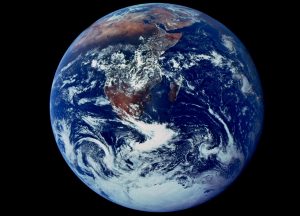 We are delighted that you’ve found us!! Please take some time to explore the pages on this website. Resources and dialogues will be added over time. The HEI will undoubtedly grow, change and evolve, as any healthy organism living within an ecological system will. Please join us and help to nurture this slow growth and mindful unfolding. All who are reading these words are most welcome here. Please join us in making this your home.
We are delighted that you’ve found us!! Please take some time to explore the pages on this website. Resources and dialogues will be added over time. The HEI will undoubtedly grow, change and evolve, as any healthy organism living within an ecological system will. Please join us and help to nurture this slow growth and mindful unfolding. All who are reading these words are most welcome here. Please join us in making this your home.
~Paul

 Holistic Education Initiative
Holistic Education Initiative
My family is so privileged to be a part of your beautiful Salmonberry community, Paul. We are excited to start exploring the wealth of information on this website as we guide our kids through the middle school years!
Thank you so much, Beth. I’m glad you found HEI. I hope it proves to be a valuable resource to you.
Yay! It is so beautiful Paul! A dream come true for many! I’m so delighted the HEI has launched. It inspires me to keep my vision clear and in the direction towards teaching to the whole child – in a holistic approach.
Wow, Linda. Thank you so much for this! It is precisely why HEI is here. A warm welcome to you!! Keep your eye on this site. Much more info, networking opportunities and features are in the works.
I’m so pleased to be a small part of this larger effort to bring holistic education values into a larger context. New research* on the subject of educational achievement, particularly with the most challenging and needy students, shows clear evidence that this approach is not only successful, it is the MOST successful. That is cultivating classrooms where students know in their hearts, they belong and where learning is joyful, engaging, and meaningful. Challenging students to show up and work hard because they want to, not because of the dire consequences if they don’t. I would dare to add that putting our Earth at the center of our practice, as its fragile health hangs in the balance, is also becoming a mainstream practice. Thank you Paul and Debbie, for all the work you do for our children and our future world.
*http://www.theatlantic.com/magazine/archive/2016/06/how-kids-really-succeed/480744/
Hey, Emmy! So glad to see you here! Thanks for the encouraging words and for the link. I highly recommend this article. I was just thinking about a future blog post that would touch on the question of the “relevance” of holistic education to lower-income and inner city communities, and this piece takes us a step in that direction. And it’s no surprise that Ron Berger and his Expeditionary Learning approach is featured here. Do others know his powerful book, An Ethic of Excellence? What do you think? It is also interesting when “research” reifies what we know to be true in our hearts. Do we need the research to validate our beliefs and practices? What is the proper place and type of research within holistic education? And how should we respond to things like “mindfulness” and “earth literacy” becoming more “mainstream practice” as you say? Is that our goal? Are there risks of co-optation, etc? Such a rich comment, you have posted, Emmy. Much food for thought here. Thank you!
I’m thrilled to see this project come into the world! I, too, have been inspired by both Ron Miller & Debbie Millon, and though I’m not presently in the classroom, this work still resonates strongly with me. It has incredible relevance in our lives, choices, interactions, and relationships – if we all could approach ourselves, each other, and our Earth holistically, with mindfulness and empathy and compassion, what transformations might occur? Thank you for the energy and passion you’ve infused here. I look forward to continuing the conversation with you all!